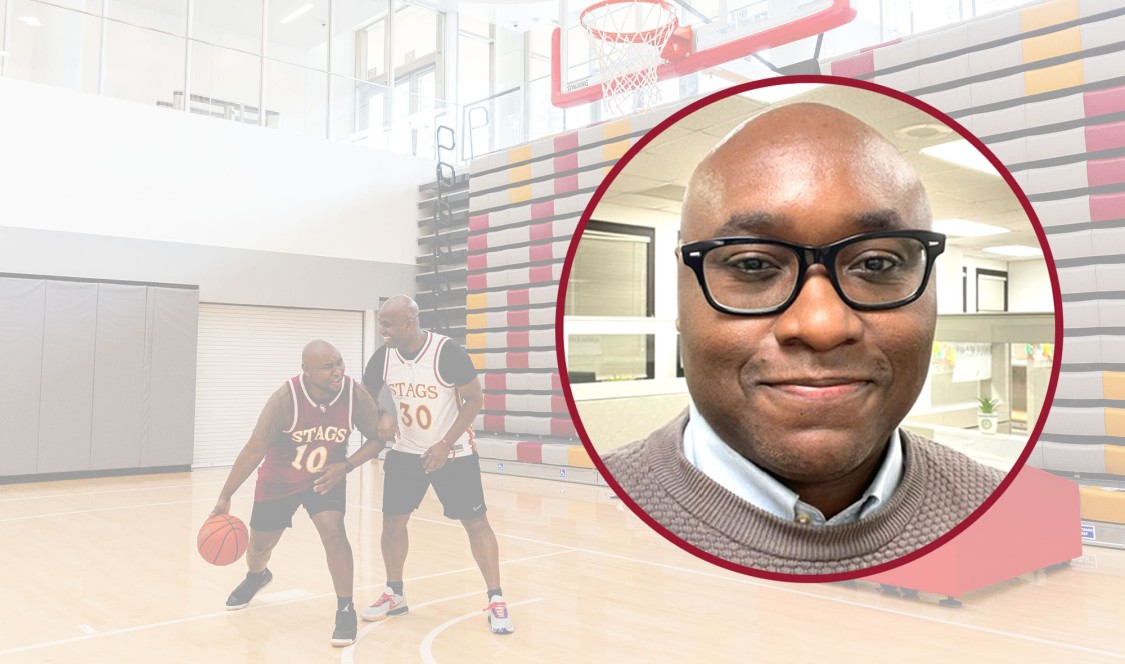Jerome Blake ’04 vividly recalls his senior thesis, despite writing it more than two decades ago. It is what led him to apply for graduate studies at UCLA Fielding School of Public Health, and eventually launch a career in epidemiology at the Los Angeles County Department of Public Health. As part of his thesis, Blake earned a grant to engage in biological research in his native Jamaica, which was published in the Geological Journal. Today, he continues to give back and be involved in the CMC community, participating in health career panels and discussions on health equity. “Giving back in this way helps students see a light at the end of the tunnel in terms of learning from alumni career experiences,” Blake said.
How did CMC prepare you for your career?
My time at CMC was special since it was my first time going to school in the United States. CMC provided an opportunity to learn about leadership, government, economics, and the many classes in my focus area, biology. I developed new social skills, learned to think critically about political issues and ideology, work hard, and be accountable. I also had the opportunity to serve my CMC community as a Resident Assistant for Marks Hall, which honed my situational leadership skills in dealing with a myriad of student issues, personalities, engagement responsibilities, dorm/campus events, and execution of the Dean of Student goals for the community. All these experiences at CMC helped shape me personally and professionally.
I moved on to graduate school at UCLA Fielding School of Public Health, and then started my career in epidemiology with the Los Angeles County Department of Public Health. I am currently in the Executive Office in the Center for Health Equity, and I often pull from those foundational professional values and interpersonal skills I developed and so fondly remember at CMC. Those leadership skills proved invaluable during my epidemiology surveillance work during the COVID-19 pandemic, and currently as we work to ensure that all residents in Los Angeles County have the resources and opportunities needed for optimal health and well-being throughout their lives.
What were some of your favorite experiences while at CMC?
Some of my favorite fun experiences included being an RA, going to Stag and Athena basketball, football, and soccer games with the closest rivals in all of college sports, those pesky Pomona-Pitzer Sagehens. Also, those amazing campus concerts, foam parties on Green Beach, and playing dunk hoops at the apartments.
I also had valuable formal experiences during dinners at the Athenaeum sitting and conversing with people like Desmond Tutu, Spike Lee, John Singleton, Dr. Michael Eric Dyson, and Aaron McGruder.
Do you have any mentors during your time at CMC?
My advisor, Dr. David Sadava from the Joint Science Department, Economics Professor Marc Massoud, Dean of Students Torrey Sun, and Vice President Jeff Huang, are a few of the many mentors I had during my time at CMC. I would be remiss if I didn’t mention Stags Basketball Coach Ken Scalmanini, who mentored me and some of my closest friends at CMC.
How would you describe the CMC community?
The CMC community is one of strong bonds, character, work ethic, and personal and community accountability. A few times during my four years at CMC, there were some “not-so-pleasant social incidents” on campus, but our community responded in the best way possible with unity and support for the affected students. CMC students overall are highly intelligent, goal-oriented, and natural leaders who work and party hard, as they should!
Why is it important for you to be involved at CMC and /or give back?
It is very important to be involved and give back to CMC and the Claremont Colleges in general. I give back mostly through active participation in campus events organized to highlight career pathways in health (outside of the traditional med-school route). Over the years since graduation, I have returned to campus a few times to speak at the Joint Science Center as part of health career panels. Recently in 2023, I spoke over on the Pomona College Campus with some of my Pomona grad colleagues who also work with me in the public health equity space. This event focused on our COVID-19 response and other equity issues facing residents in Los Angeles and career pathways in our department. Giving back in this way helps students see a light at the end of the tunnel in terms of learning from alumni career experiences.
Do you remember your thesis? How did it impact you personally/professionally?
My thesis was wild! I got funded through a grant to go back to my homeland in Jamaica to excavate hemi-mandibles of a late Pleistocene species of rodent called Jamaican Hutia/Coney (Geocapromys brownii) from a composite site in the Red Hills Fissure area of the Blue Mountains in the parish of St. Andrew. I did fluorine relative dating testing and measurement of the fluorine uptake in the mandible bones to help in the construction of a life table for the species in the late Pleistocene site. This was made possible by Professor Donald McFarlane with the Joint Science Department Biology. Completing the work boosted my confidence in biological research, as it led to one of the first research journal publications I ever collaborated on. It impacted me personally because it was also the first time in four years that I headed back home since immigrating to the U.S. and attending CMC. Having this project research experience helped with my work and research over the years in public health both in grad school and in the career field.
Is there anything else you would like to add?
CMC—Best four-year college experience!

